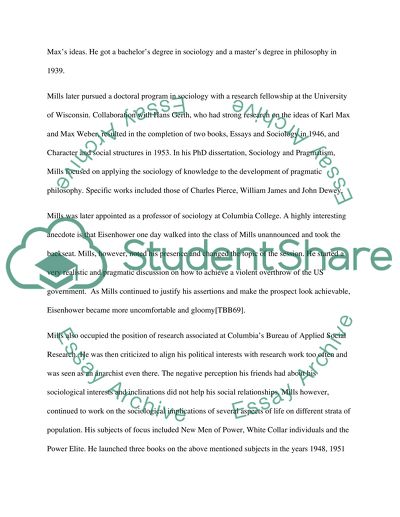Cite this document
(“Charles Wright Mills Term Paper Example | Topics and Well Written Essays - 3750 words”, n.d.)
Retrieved de https://studentshare.org/sociology/1391575-charles-wright-mills
Retrieved de https://studentshare.org/sociology/1391575-charles-wright-mills
(Charles Wright Mills Term Paper Example | Topics and Well Written Essays - 3750 Words)
https://studentshare.org/sociology/1391575-charles-wright-mills.
https://studentshare.org/sociology/1391575-charles-wright-mills.
“Charles Wright Mills Term Paper Example | Topics and Well Written Essays - 3750 Words”, n.d. https://studentshare.org/sociology/1391575-charles-wright-mills.


